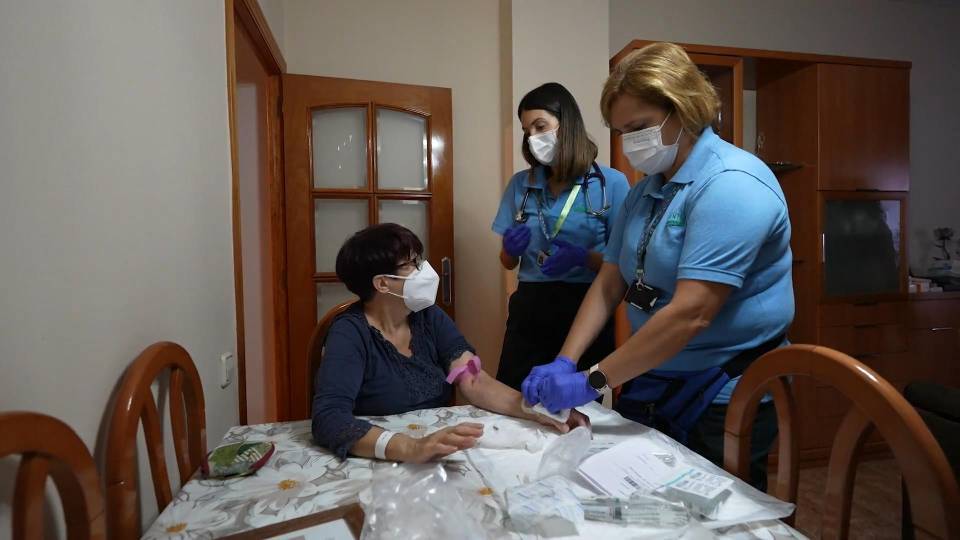of the favourite forms of leisure and socializing for many young people.
Today, no one disputes the advantages of using ICT. However, there is great concern about the possible negative influence that excessive, problematic or addictive use of mobile phones, video games and social networks may have on the physical and psychosocial development of children and adolescents, especially those who are most vulnerable, such as minors with mental health problems.
How screen use affects the adolescent brain
Several scientific studies have associated the excessive use of screens with academic performance problems and various mental health disorders, although no causal relationship has been proven. Current evidence suggests that both factors influence each other, without it being possible to establish which came first. When an addictive disorder coexists with another mental disorder, this is referred to as ‘dual pathology'.
In general, parents and educators are responsible for teaching young people to use ICT in moderation and for promoting a critical attitude towards digital content and culture. It is their responsibility to negotiate the time and conditions of use, as well as to supervise that these are complied with. However, when this is not enough and the criteria for problematic or addictive use are met, specific treatment in specialized programmes is necessary, such as the Dual Programme offered by the Child and Adolescent Psychiatry and Psychology Service at the Hospital Clínic. These programmes address the problem of screen use, taking into account the various comorbid factors, and always from a multidisciplinary perspective.
The treatment of the dual pathology related to the problematic or addictive use of screens requires flexibility and adaptation to each case. First of all, it is necessary to understand the symptoms and circumstances, and assess what other emotional, cognitive, family or social difficulties, in addition to screen use, may require intervention. On the other hand, controlling addictive behaviour must be a shared goal, since, unlike substance addictions, complete abstinence from technology in the medium to long term is not realistic in today’s society, where technology is an indispensable tool for education, socialization and future employment.
Furthermore, especially in children and adolescents, it is essential that treatments go beyond simply controlling screen time, as this can often be an escape route or a defence mechanism to cope with personal difficulties. So, most programmes must include the treatment of comorbid symptoms such as anxiety or depression, in combination with training in social skills, emotional management, planning, organization and impulse control, among other things. It is also essential to help young people build a new lifestyle that integrates healthy leisure alternatives into their daily obligations and incorporates their family and immediate social environment.
Educating on healthy screen use
Recently, some countries banned access to social media for children under the age of 16. This possibility is also being debated in our country, as well as the drastic restriction of the use of electronic devices in primary and secondary schools. In response to these prohibitionist proposals, some professionals advocate a more balanced approach, which would restrict screen use only during early childhood and promote a gradual introduction to technology as children mature, combining responsible use with other activities that are beneficial for their development.
These proposals require support measures for families and educators in their task of teaching and supervising the proper use of technologies at each stage of child and adolescent development, with special attention being paid to children with neurodevelopmental disorders, such as Attention Deficit Disorder with our without Hyperactivity (ADHD) or Autism Spectrum Disorder (ASD), as well as those with emotional or social relationship difficulties, who may be at higher risk of problems associated with screen use.
In short, the approach to problematic behaviour associated with screens must be flexible and take into account multiple factors, both individual and related to the social environment and cultural context, which is why there are various proposals and approaches around the world. For example, in some Eastern countries with a more disciplinary tradition, it is common to send young people addicted to video games or the Internet to military-style work camps (known as boot camps). Therefore, in some national contexts, laws prohibiting access to social networks for minors under the age of 16 may be useful. Only time will tell, and in any case, it will be necessary to assess whether these measures are applicable in our country, where cultural and legislative circumstances, as well as family and social needs, are different. Some experts believe that this measure may be difficult to implement in our environment, or even counterproductive, as it could increase the desire to access certain platforms, encourage the creation of fake accounts or the concealment of real age.
Moreover, it seems unlikely that this measure will be truly effective if it is not accompanied by other actions, such as control of the technology industry and support for families and educators to facilitate "digital support’ for minors.
References:
- Díaz-Hurtado, R., Mateus-Gómez, S., Alonso-Vilar, C., Romero-Triñanes, E., Castro-Mesa, A., Magallón-Neri, E. (2025, in press). Problematic Internet use, psychopathological comorbidity and personality factors in an adolescent clinical population. Health and Addictions/Health and Drugs, 25(1). DOI: https:/doi.org/10.21134/989
- Communication from clinical psychology professionals specializing in behavioral addictions on the use of screens






